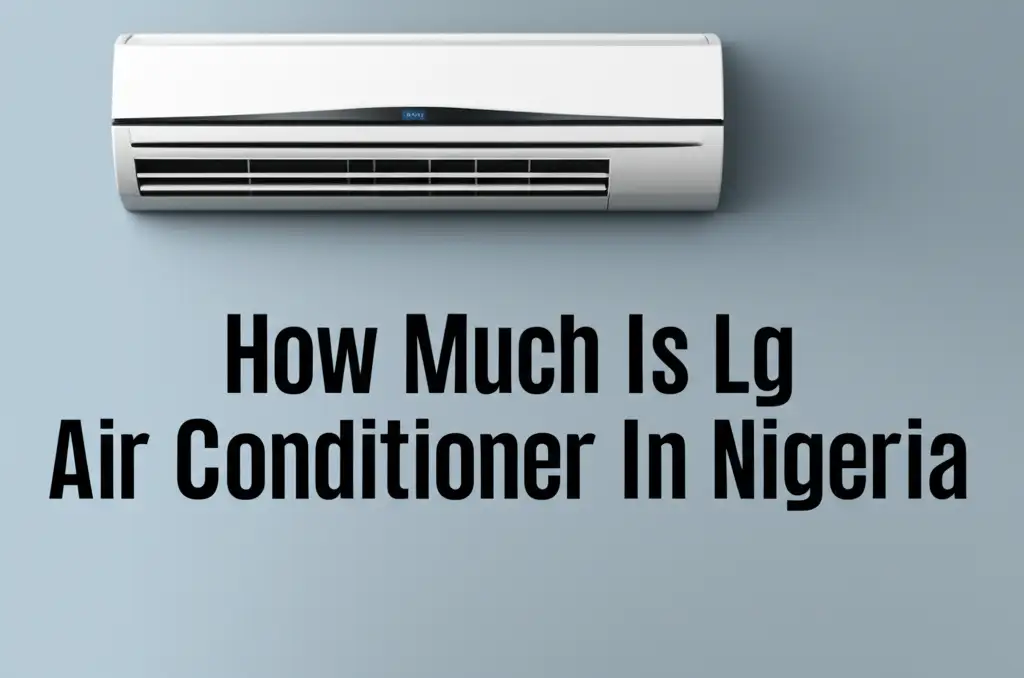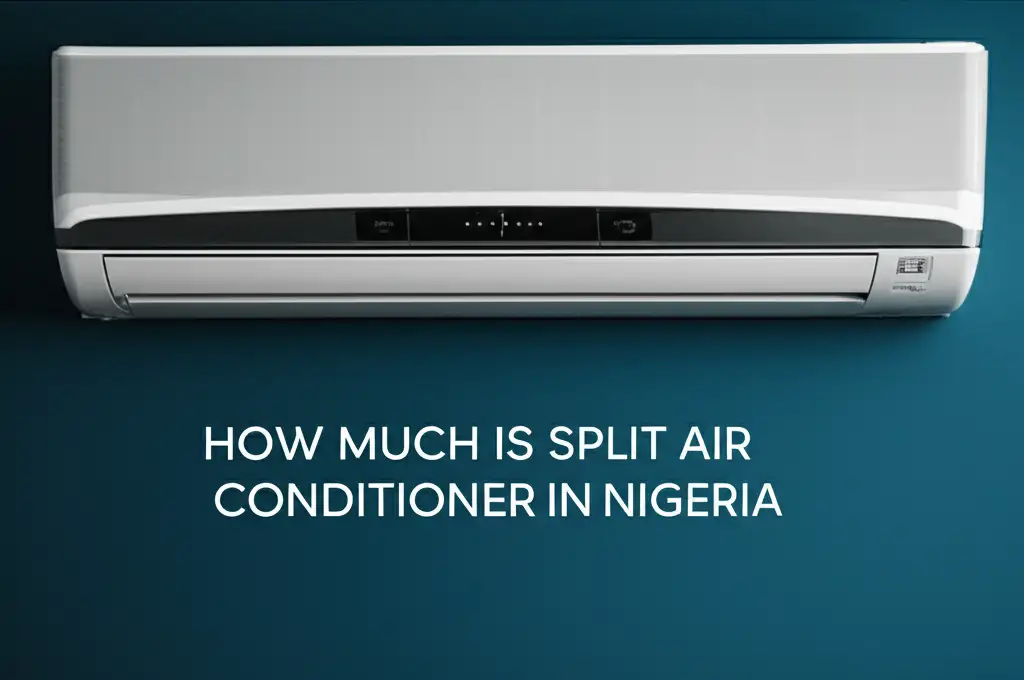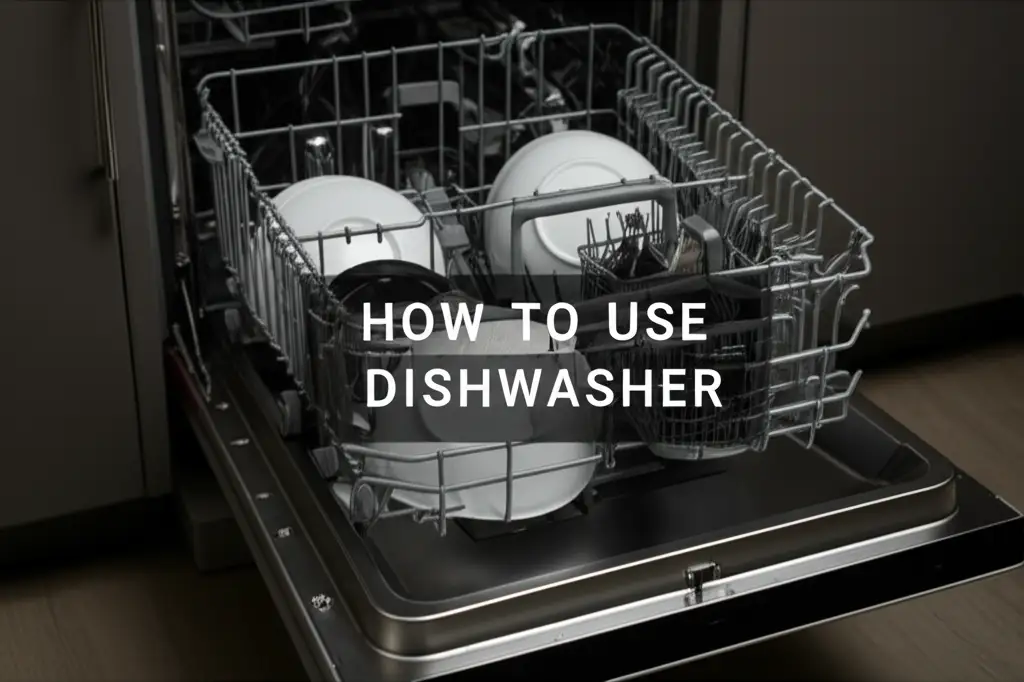· Katria Melrose · Home Appliances · 20 min read
How Much Is Lg Air Conditioner In Nigeria

LG Air Conditioner Price in Nigeria: Your Ultimate Buying Guide
Considering an LG air conditioner for your home or office in Nigeria? You are making a smart choice. LG is a respected brand known for its quality cooling systems. I know you want to understand the costs involved. This guide helps you navigate the prices of LG air conditioners in Nigeria.
We will explore different LG AC models and their features. You will learn what makes prices vary. We will also cover installation costs and energy use. By the end, you will have a clear picture of how much an LG air conditioner costs. You will be ready to make a confident purchase decision.
Takeaway
- LG AC prices vary widely: Factors like BTU, inverter tech, and features affect cost.
- Installation is a separate cost: Always budget for professional setup.
- Inverter ACs save money long-term: Higher initial cost, but lower electricity bills.
- Check warranty and dealer reputation: Buy from trusted sources for peace of mind.
- Consider room size for BTU: Match the AC capacity to your space for best efficiency.
How Much Does an LG Air Conditioner Cost in Nigeria?
The price of an LG air conditioner in Nigeria varies significantly based on type, capacity (BTU), technology (inverter vs. non-inverter), and features. Generally, a new LG AC can range from N350,000 for a small non-inverter unit to over N1,500,000 for large, advanced inverter models. Installation costs are typically separate.
Understanding LG Air Conditioner Prices in Nigeria
Figuring out the cost of an LG air conditioner in Nigeria involves several factors. Prices are not fixed; they change based on many things. I find it helpful to think about value, not just the initial price tag. LG offers a range of air conditioners. Each one suits different needs and budgets.
The Nigerian market has a mix of LG AC models. You can find basic units and highly advanced ones. The price often reflects the technology and features included. For example, a unit with inverter technology usually costs more upfront. However, it saves money on electricity bills over time. This is a crucial point for long-term savings.
Currency exchange rates also play a big role in pricing. As the Naira fluctuates against the dollar, import costs change. This directly impacts the final retail price of LG air conditioners. Always check current prices with various vendors. This helps you get the most accurate information.
Furthermore, location within Nigeria can affect prices. What you pay in Lagos might differ from prices in Abuja or Port Harcourt. Transport costs and local dealer markups contribute to these variations. Always compare prices from different dealers to ensure you get a fair deal. This careful comparison can save you a good amount of money.
Types of LG Air Conditioners and Their Costs
LG manufactures various types of air conditioners. Each type serves different purposes and comes with different price points. Understanding these types helps you choose the right one for your space and budget. I often advise people to consider their specific cooling needs first.
LG Split Air Conditioners
Split ACs are the most common type for homes and offices. They have an indoor unit and an outdoor unit. This design makes them quieter indoors. LG offers many split AC models. Their prices vary based on capacity and features.
A 1.0 HP (Horsepower) non-inverter LG split AC may cost between N350,000 and N500,000. A 1.5 HP unit typically ranges from N450,000 to N650,000. Larger 2.0 HP and 2.5 HP units can go from N600,000 to N900,000 or more. Prices are estimates and subject to market changes. Split ACs provide efficient cooling for dedicated spaces. If you want to know more about different split AC options, you can read our guide on how much is split air conditioner in Nigeria.
LG Inverter Air Conditioners
Inverter technology is a significant innovation. LG inverter ACs adjust compressor speed. This saves a lot of energy. They maintain a more consistent temperature. This technology makes them more expensive initially.
However, the energy savings often outweigh the higher purchase price. A 1.0 HP LG inverter split AC could cost N500,000 to N700,000. A 1.5 HP unit might be N650,000 to N900,000. Larger inverter units, like 2.0 HP or 2.5 HP, can range from N800,000 to N1,500,000+. These are excellent for long-term use. They reduce electricity bills considerably.
LG Window Air Conditioners
Window ACs are simpler and more compact. They are single units that fit into a window opening. These are generally more affordable than split units. They are suitable for cooling single rooms. Installation is also simpler and usually cheaper.
An LG window AC of 1.0 HP might cost N300,000 to N450,000. Larger 1.5 HP window units can be N400,000 to N550,000. While less common in new installations compared to split units, they offer a budget-friendly cooling solution. They are a good choice if space or budget is a primary concern.
LG Portable Air Conditioners
Portable ACs offer flexibility. You can move them from room to room. They do not require permanent installation. This makes them ideal for renters or those needing temporary cooling. They come with a hose that vents hot air out a window.
Prices for LG portable ACs range from N300,000 to N550,000. Their cooling capacity is usually lower than split or window units. They are best for small spaces. They are convenient for their mobility.
Specific LG AC Models and Estimated Price Ranges
LG offers several popular models in Nigeria. Each model has unique features and technologies. Knowing these specific lines helps you understand the price variations better. I always encourage people to research specific models.
LG DUALCOOL Inverter Air Conditioners
The DUALCOOL series is very popular. It features LG’s Dual Inverter Compressor technology. This technology ensures faster cooling and significant energy savings. These models are highly efficient. They are also known for their durability.
A 1.0 HP LG DUALCOOL Inverter typically costs N550,000 to N750,000. For a 1.5 HP unit, expect to pay N700,000 to N950,000. Larger capacities, like 2.0 HP, can range from N900,000 to N1,200,000+. These models are a premium choice. They offer excellent performance and lower running costs. They often come with features like active energy control and low noise operation.
LG Gen Cool Inverter Air Conditioners
The Gen Cool series is designed for regions with unstable power supply. This makes them very suitable for Nigeria. They operate efficiently even with low voltage fluctuations. This protects the compressor and extends the AC’s lifespan. This feature is very valuable in areas with frequent power issues.
Prices for LG Gen Cool Inverter models are similar to DUALCOOL, but they might be slightly higher due to the voltage protection feature. A 1.0 HP Gen Cool Inverter could be N580,000 to N780,000. A 1.5 HP unit might cost N750,000 to N1,000,000. These are built to withstand tough power conditions.
LG Artcool Inverter Air Conditioners
LG Artcool series combines advanced technology with sleek design. These units are aesthetically pleasing. They often feature mirror finishes or unique panel designs. They are perfect for those who want an AC that also serves as a decor element.
Artcool models are at the higher end of the price spectrum. A 1.5 HP LG Artcool Inverter could cost N900,000 to N1,300,000. They include all the benefits of inverter technology. They also offer features like Wi-Fi control and advanced air filtration. These are a great choice if design and smart features are important to you.
Non-Inverter LG Split ACs
While inverter models dominate the market, LG still offers non-inverter split ACs. These are generally more affordable upfront. They are a good option for those on a tighter budget. However, their energy consumption is higher.
A 1.0 HP LG non-inverter split AC may cost N350,000 to N500,000. A 1.5 HP unit might be N450,000 to N650,000. They provide reliable cooling. Just be aware of the higher electricity bills compared to inverter models. Consider your usage frequency before choosing a non-inverter unit.
Factors Influencing LG Air Conditioner Prices in Nigeria
Several elements directly impact the price of an LG air conditioner in Nigeria. Understanding these factors helps you make an informed choice. I always tell customers to look beyond the initial number. These elements determine the long-term value and running cost.
Capacity (BTU/HP)
The cooling capacity of an AC unit is measured in British Thermal Units (BTU) or Horsepower (HP). Higher BTU means more cooling power. This also means a higher price.
- 1.0 HP (9,000-10,000 BTU): Suitable for small rooms (up to 10-12 sqm).
- 1.5 HP (12,000-13,000 BTU): Good for medium rooms (15-20 sqm).
- 2.0 HP (18,000 BTU): Ideal for larger rooms or living areas (25-30 sqm).
- 2.5 HP (24,000 BTU): Best for very large spaces or open-plan areas (35-40 sqm). Matching the AC capacity to your room size prevents over-cooling or under-cooling. It also affects energy efficiency. An undersized AC will work harder, consume more power, and wear out faster.
Inverter Technology
As discussed, inverter technology adds to the cost. However, it offers significant long-term savings. Non-inverter ACs turn off and on frequently. This consumes more power. Inverter ACs adjust compressor speed continuously. This makes them more efficient. Many homeowners in Nigeria prefer inverter models. They understand the value of reduced electricity bills.
Features and Smart Technology
Modern LG air conditioners come with many advanced features. These features add to the convenience and functionality.
- Wi-Fi Connectivity: Allows control via smartphone app. This lets you turn the AC on or off remotely. You can also adjust settings before you get home. How to control LG air conditioner with phone can provide more details.
- Self-Cleaning Function: Helps prevent mold and bacteria buildup. This improves air quality. It also reduces the need for frequent professional cleaning.
- Air Filtration Systems: Some models have advanced filters. These remove allergens and pollutants.
- Low Noise Operation: Special design minimizes operational sound. This is great for bedrooms.
- Voltage Stabilizer Built-in: Important for Nigeria’s power grid. This protects the unit from voltage fluctuations. Each added feature increases the unit’s price. Evaluate which features are essential for your needs.
Warranty and After-Sales Support
The warranty period and availability of after-sales support are crucial. A longer warranty often indicates manufacturer confidence. It also protects your investment. LG has a good network of service centers in Nigeria. However, buying from an authorized dealer ensures you get a valid warranty. It also ensures access to genuine spare parts. If you ever find your LG air conditioner is not cooling, a good warranty makes repairs easier.
Retailer and Location
Different retailers might offer varying prices. Online stores might have lower overheads. This could lead to slightly better prices. However, physical stores offer immediate access and direct consultation. Prices can also differ based on your city or state in Nigeria. This is due to logistics and regional demand. Always compare prices from reputable sellers.
Exchange Rate Fluctuations
Nigeria imports most air conditioners. The exchange rate of the Naira against the US Dollar directly impacts import costs. When the Naira weakens, prices of imported goods, including LG ACs, tend to rise. This is a dynamic factor. It is why prices can change frequently.
Beyond the Purchase Price: Installation and Running Costs
Buying an LG air conditioner is just the first step. You also need to budget for its installation and running costs. These expenses are significant. They often determine the total cost of ownership over time. I always advise people to consider these hidden costs.
Installation Costs for LG Air Conditioners
Installation fees are separate from the AC unit’s price. Professional installation is crucial for optimal performance. It also ensures the warranty remains valid. Installation costs in Nigeria typically range from N30,000 to N80,000 for a standard split unit. This price can vary based on:
- Unit Capacity: Larger units may require more complex installation.
- Location: Installation in higher floors or difficult-to-access areas costs more.
- Materials: Cost of copper pipes, electrical wiring, and brackets.
- Labor: Experience and reputation of the installer. Always get a clear quote for installation before purchase. Ensure the installers are certified. Proper installation prevents future problems. It also ensures your AC runs efficiently. If you ever need to install an LG AC in a window, there are specific steps to follow, for example, for a window AC installation.
Running Costs: Electricity Bills
The biggest ongoing cost is electricity consumption. This is where inverter technology shines.
- Non-Inverter ACs: These consume a fixed amount of power when running. They cycle on and off to maintain temperature. This on/off cycling uses more electricity.
- Inverter ACs: They adjust their compressor speed. This means they run continuously but at varying power levels. This constant operation at lower power uses significantly less electricity. LG inverter ACs can save up to 70% on energy compared to non-inverter models.
Factors affecting electricity consumption include:
- Usage Hours: How long you run the AC each day.
- Temperature Settings: Lower temperatures require more power.
- Room Insulation: Poorly insulated rooms lose cooling quickly, making the AC work harder.
- Maintenance: A dirty filter or unserviced unit consumes more power. Regularly cleaning your filter is key. You can check out how to clean air conditioner filter for LG models. Also, knowing how many watts does an LG air conditioner use helps in estimating costs.
Maintenance Costs
Regular maintenance is vital for an AC’s lifespan and efficiency. This includes cleaning filters, checking refrigerant levels, and general servicing.
- Filter Cleaning: You can do this yourself regularly. If your LG air conditioner says clean filter, it’s a good reminder.
- Professional Servicing: Annually or bi-annually, depending on usage. A professional service helps prevent issues. It also ensures peak performance. This might cost N15,000 to N30,000 per service. Regular servicing can prevent major breakdowns. It also helps your unit cool effectively. If you want to know how to service LG air conditioner at home, there are guides for simple tasks. Also, if your LG air conditioner keeps turning off or is leaking water, maintenance might be the solution.
Where to Buy LG Air Conditioners in Nigeria
Finding a reliable place to buy your LG air conditioner is just as important as knowing the price. You want to ensure you get a genuine product with a valid warranty. I always recommend buying from trusted sources. This protects your investment.
Authorized LG Dealers and Showrooms
These are the most reliable places to buy. Authorized dealers sell genuine LG products. They offer the full manufacturer’s warranty. You can also get expert advice from their staff. They often have showrooms where you can see the units.
- Advantages: Guaranteed authenticity, full warranty, professional advice, good after-sales support.
- Disadvantages: Prices might be slightly higher than unofficial channels. Look for LG-branded showrooms or major electronics retailers. They are usually easy to find in major cities like Lagos, Abuja, and Port Harcourt.
Major Online Retailers
Nigeria has several reputable online platforms. These platforms sell a wide range of electronics, including LG ACs.
- Jumia, Konga, PayPorte: These are popular e-commerce sites. They often offer competitive prices and home delivery.
- Advantages: Convenience, price comparison, wider selection, occasional discounts.
- Disadvantages: You cannot physically inspect the product before purchase. Delivery times can vary. Ensure the seller is reputable and offers a warranty. Check customer reviews for the specific seller.
Local Electronics Markets
You can find LG air conditioners in major electronics markets. These markets are in cities like Alaba International Market in Lagos or Computer Village. Prices might be negotiable here. You may find better deals.
- Advantages: Potential for lower prices, direct negotiation.
- Disadvantages: Risk of fake products, limited warranty support, less structured after-sales service. If buying from these markets, exercise caution. Verify the product’s authenticity. Check for the LG hologram or serial number. Insist on a written warranty or receipt. Some deals might seem too good to be true. They often are.
Tips for Safe Purchase
- Verify Authenticity: Look for LG’s official branding, packaging, and serial numbers.
- Check Warranty: Confirm the warranty period and terms before payment. Ensure it’s an LG Nigeria warranty.
- Compare Prices: Check at least three different sources before deciding.
- Read Reviews: Look at customer reviews for both the product and the seller.
- Payment Security: If buying online, use secure payment methods. Avoid direct bank transfers to unknown sellers.
Tips for Getting the Best LG AC Deal in Nigeria
Finding the best deal on an LG air conditioner in Nigeria requires some smart shopping. It’s not just about the lowest price. It’s about getting the right value for your money. Here are my top tips for securing a good deal.
Compare Prices Across Multiple Retailers
Do not settle for the first price you see. Check with authorized dealers, major online stores, and even some reputable local shops. Prices can vary significantly between different sellers. Use price comparison websites if available. This helps you get a sense of the market average. This effort can save you thousands of Naira.
Look for Seasonal Sales and Promotions
Retailers often have sales events. These happen during festive seasons or special shopping days. Examples include Black Friday, Christmas, or New Year sales. Keep an eye out for these promotions. You might find significant discounts or bundled offers. Subscribing to newsletters from electronics stores can alert you to upcoming sales.
Consider Energy Efficiency (EER/SEER Ratings)
While an inverter AC might cost more upfront, its energy efficiency leads to lower electricity bills. Look for the Energy Efficiency Ratio (EER) or Seasonal Energy Efficiency Ratio (SEER) ratings. Higher ratings mean better energy efficiency. An AC with a higher EER will cost less to run over its lifespan. This is a crucial long-term saving.
Negotiate (Especially in Local Markets)
In some local electronics markets, prices are often negotiable. Do not be afraid to haggle. Be polite but firm. Know the average market price before you start negotiating. This gives you leverage. Always negotiate for a better price or added benefits like free delivery or installation.
Check for Bundled Offers
Sometimes, retailers offer packages. For example, an AC unit might come with free installation. Or they might include a voltage stabilizer. These bundles can offer better overall value than buying each item separately. Always calculate the total cost of the bundle versus individual items.
Verify Warranty and After-Sales Service
A good deal is not just a low price. It also includes peace of mind. Ensure the LG air conditioner comes with a valid manufacturer’s warranty. Confirm the terms and length of the warranty. Also, ask about after-sales service. Knowing that you can get support if your LG air conditioner is loud or won’t turn on is very important. A cheap AC without a warranty might end up costing you more in repairs.
Consider Last Year’s Models
Newer models often have slightly higher prices upon release. You might find good deals on last year’s LG AC models. These models are still highly functional and reliable. They might lack some of the very latest features. However, they provide excellent cooling performance at a lower cost. This is a smart way to save money.
Maintaining Your LG Air Conditioner for Longevity and Efficiency
Maintaining your LG air conditioner properly ensures it lasts longer and works efficiently. Regular care prevents breakdowns and saves on electricity bills. I consider maintenance a crucial part of AC ownership. It extends the life of your investment.
Regular Filter Cleaning
The air filters are the first line of defense. They trap dust, dirt, and allergens. Dirty filters block airflow. This makes the AC work harder. It uses more energy and cools less effectively.
- Frequency: Clean your LG AC filters every 2-4 weeks, especially in dusty environments.
- How to Clean: Most LG ACs have washable filters. Remove them, rinse with water, and let them dry completely before reinserting. You can find detailed instructions on how to clean filter on LG dual inverter air conditioner.
Keep the Outdoor Unit Clear
The outdoor unit (condenser) needs good airflow. Ensure it is free from obstructions. Leaves, dirt, and debris can block its fins. This reduces cooling efficiency.
- Check Regularly: Clear away any plants, garbage, or other items around the unit.
- Clean Fins: Gently brush or vacuum the condenser fins to remove dirt. Be careful not to bend them.
Schedule Professional Servicing
While you can do basic cleaning, professional servicing is vital. A technician can check refrigerant levels. They can clean internal components like the evaporator coil and condenser coil. They can also check electrical connections.
- Frequency: Aim for professional servicing once a year. If you use the AC heavily, do it twice a year.
- Benefits: Prevents costly repairs, improves efficiency, prolongs lifespan, and ensures optimal performance. They can also diagnose issues like if your LG air conditioner is not cooling effectively.
Check for Leaks and Strange Noises
Pay attention to any unusual signs.
- Water Leaks: If your LG AC is leaking water, it could be a clogged drain pipe or a refrigerant issue.
- Strange Noises: Unusual sounds like grinding or rattling may indicate a problem. If your LG air conditioner is so loud, it needs checking. Address these issues promptly. Early detection can prevent more severe damage.
Use the Timer Function
Many LG air conditioners have a timer. Use it to switch off the AC when not needed. For example, set it to turn off a few hours after you go to bed. This saves energy. It also reduces wear and tear on the unit. Learning how to use timer on LG air conditioner helps optimize usage.
FAQ Section
Is LG AC good in Nigeria?
Yes, LG air conditioners are very popular and considered good in Nigeria. They are known for their durability, energy efficiency (especially inverter models), and effective cooling. LG also has a good service network in Nigeria, making support and parts accessible. Many models are designed to handle Nigeria’s power conditions.
What is the average lifespan of an LG AC?
With proper installation and regular maintenance, an LG air conditioner can last between 10 to 15 years. Factors like usage frequency, environmental conditions, and consistent professional servicing significantly influence its lifespan. Neglecting maintenance can drastically reduce its operational years.
Do LG inverter ACs really save energy?
Yes, LG inverter ACs genuinely save significant energy. They adjust their compressor speed constantly, unlike non-inverter models that cycle on and off. This continuous operation at varied speeds leads to much lower electricity consumption, often resulting in 30% to 70% energy savings compared to conventional units.
What size LG AC do I need for my room?
The size of AC needed depends on your room dimensions. For a small room (up to 12 sqm), a 1.0 HP (9,000-10,000 BTU) unit is usually sufficient. For a medium room (15-20 sqm), a 1.5 HP (12,000-13,000 BTU) is ideal. Larger rooms (25-30 sqm) need 2.0 HP (18,000 BTU) or more. Consider ceiling height and sunlight exposure.
How much is LG portable AC in Nigeria?
LG portable air conditioners in Nigeria typically range from N300,000 to N550,000. These prices vary based on cooling capacity and specific features. Portable ACs offer flexibility as they do not require permanent installation and can be moved between rooms, making them a convenient option for temporary cooling.
What is the installation cost for an LG AC in Nigeria?
The installation cost for an LG air conditioner in Nigeria typically ranges from N30,000 to N80,000 for a standard split unit. This price can vary depending on the unit’s capacity, the complexity of the installation site, the materials required, and the specific installer or service provider’s rates. Always get a clear quote beforehand.
Conclusion
Understanding the cost of an LG air conditioner in Nigeria involves more than just the initial purchase price. You need to consider the type of AC, its capacity, inverter technology benefits, and smart features. Installation and long-term running costs are also important. I hope this guide helps you make an informed decision.
LG offers a wide range of reliable and efficient air conditioners to suit various budgets and needs. Investing in an LG air conditioner means choosing a brand known for quality and innovation. Always prioritize buying from authorized dealers to ensure authenticity and warranty support. With proper research and careful consideration, you can find the perfect LG air conditioner that provides comfortable cooling for years to come without breaking the bank. Start comparing prices today and enjoy the cool comfort of an LG AC.
- LG AC price
- Nigeria AC cost
- LG air conditioner Nigeria
- AC prices
- Split AC Nigeria
- Inverter AC Nigeria





